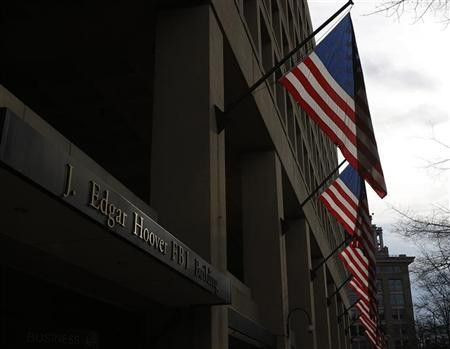Russian Spy Case: FBI Throws Water On Media Speculation Of Would-Be Seducer's Identity

A female Russian spy was close to seducing a member of U.S. President Barack Obama's cabinet in 2010, the FBI's assistant director for counterintelligence revealed in a recent interview with British television.
Frank Figliuzzi said the Federal Bureau of Investigation had been tracking a 10-person Russian spy ring for years but had to act sooner than planned because it feared a female agent was getting close to drawing a U.S. official into a honey trap.
The individual got closer and closer to higher and higher ranking leadership. She got close enough to disturb us, Figliuzzi said in a segment that aired this week on Modern Spies, a documentary series on the BBC Two channel in Britain.
We were becoming very concerned, Figliuzzi said. They were getting close enough to a sitting U.S. cabinet member that we thought we could no longer allow this to continue.
Figliuzzi didn't identify the U.S. official or the Russian operative in question, but the BBC program implies, and a follow-up story in U.K. newspaper the Independent claims, he was talking about Anna Chapman, a glamorous redhead who was the focus of media coverage of the arrests and has become a celebrity in Russia in the two years since.
However, an FBI spokesman told ABC News on Tuesday that it wasn't Chapman but another of the accused agents -- using the alias Cynthia Murphy -- whose intentions prompted the FBI to roll up the investigation.
There is no allegation or suggestion in the complaint that Anna Chapman or anyone else associated with this investigation attempted to seduce a U.S. cabinet official, ABC News quoted FBI spokesman Paul Bresson as saying.
Bresson, according to ABC News, said Figliuzzi's comments to the BBC were in line with what court documents by U.S. prosecutors in the spy case have already said, including that the decision to make the arrests came after an FBI agent went undercover and contacted Chapman, who became alarmed.
Those documents revealed that Murphy (real name Lydia Guryeva), who lived in Montclair, N.J., with another sleeper agent posing as her husband, had been in contact with a fund-raiser and personal friend of a current Cabinet official. Although the fund-raiser wasn't mentioned by name in prosecutors' papers, he was later identified through media reports as Alan Patricof, a friend of Hillary Clinton. (She had taken the office of secretary of state upon Obama's inauguration in January 2009.)
Soon after the arrests, Patricof said he had retained Murphy's financial-services firm more than two years before, had met with her a few times and spoke with her often on the phone. Patricof has denied he discussed anything but paying the bills with Murphy, telling the Washington Post in June 2010 that she never once asked me about government, politics or anything remotely close to that subject.
After their arrest, the 10 spies -- five men and five women -- were sent back to Moscow in exchange for four Americans who had been in Russian custody, U.S. authorities said at the time.
In the criminal complaint federal prosecutors in New York filed in court in conjunction with the June 2010 arrests, Chapman is alleged to have passed intelligence to Russian agents in Manhattan while the nine others implicated in the spy ring collected tidbits of information then unknown publicly from contacts and people who have access to important venues such as the White House.
Chapman, now 29 but still using her surname from a brief marriage to a Briton, was deported to Russia after pleading guilty to conspiracy charges. She's now a minor celebrity in her native country, having hosted a weekly TV program about paranormal events, posed for magazine lingerie shoots and given speeches at rallies for Prime Minister Vladimir Putin, an officer in the Soviet KGB during the 1970s and '80s.
© Copyright IBTimes 2024. All rights reserved.





















